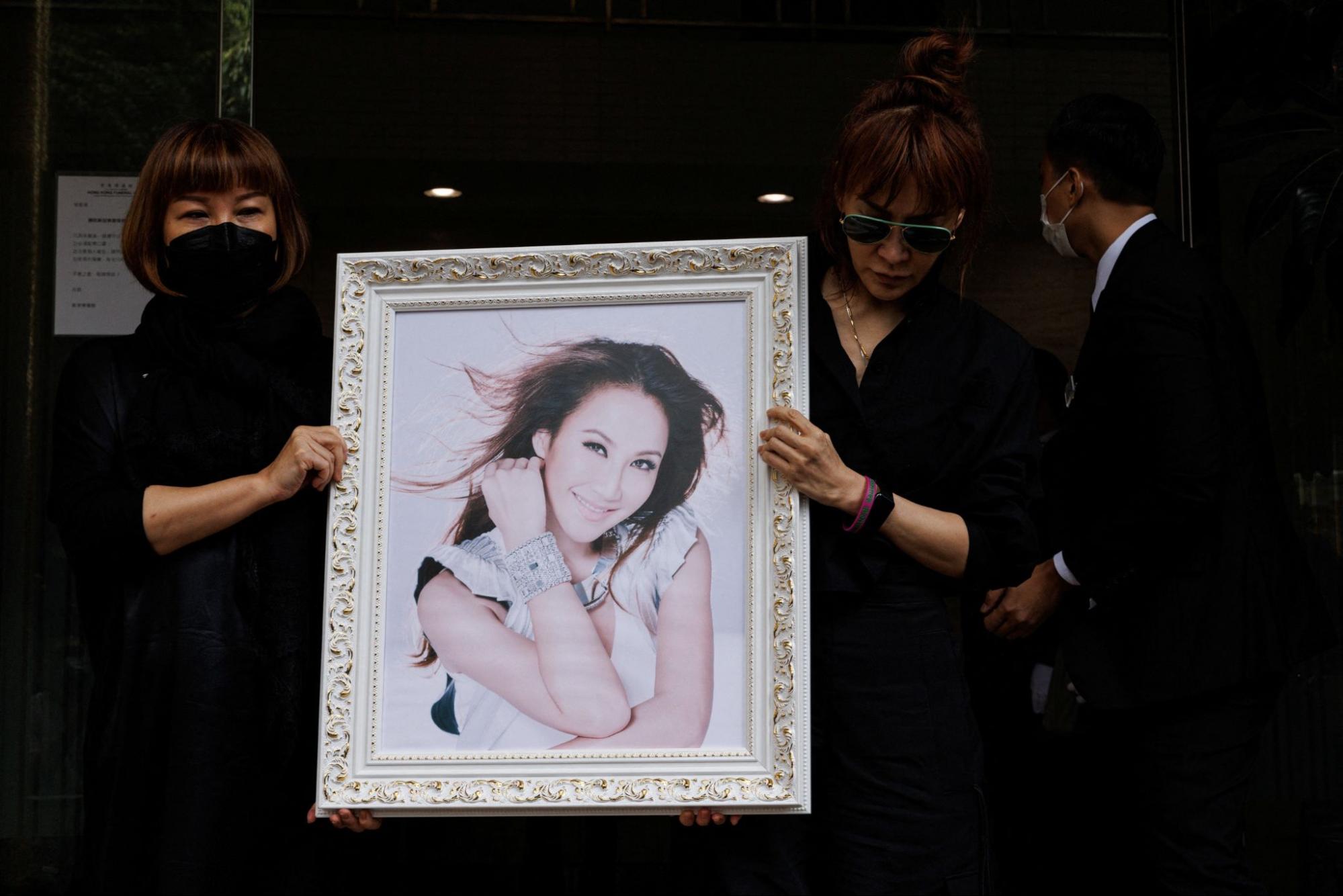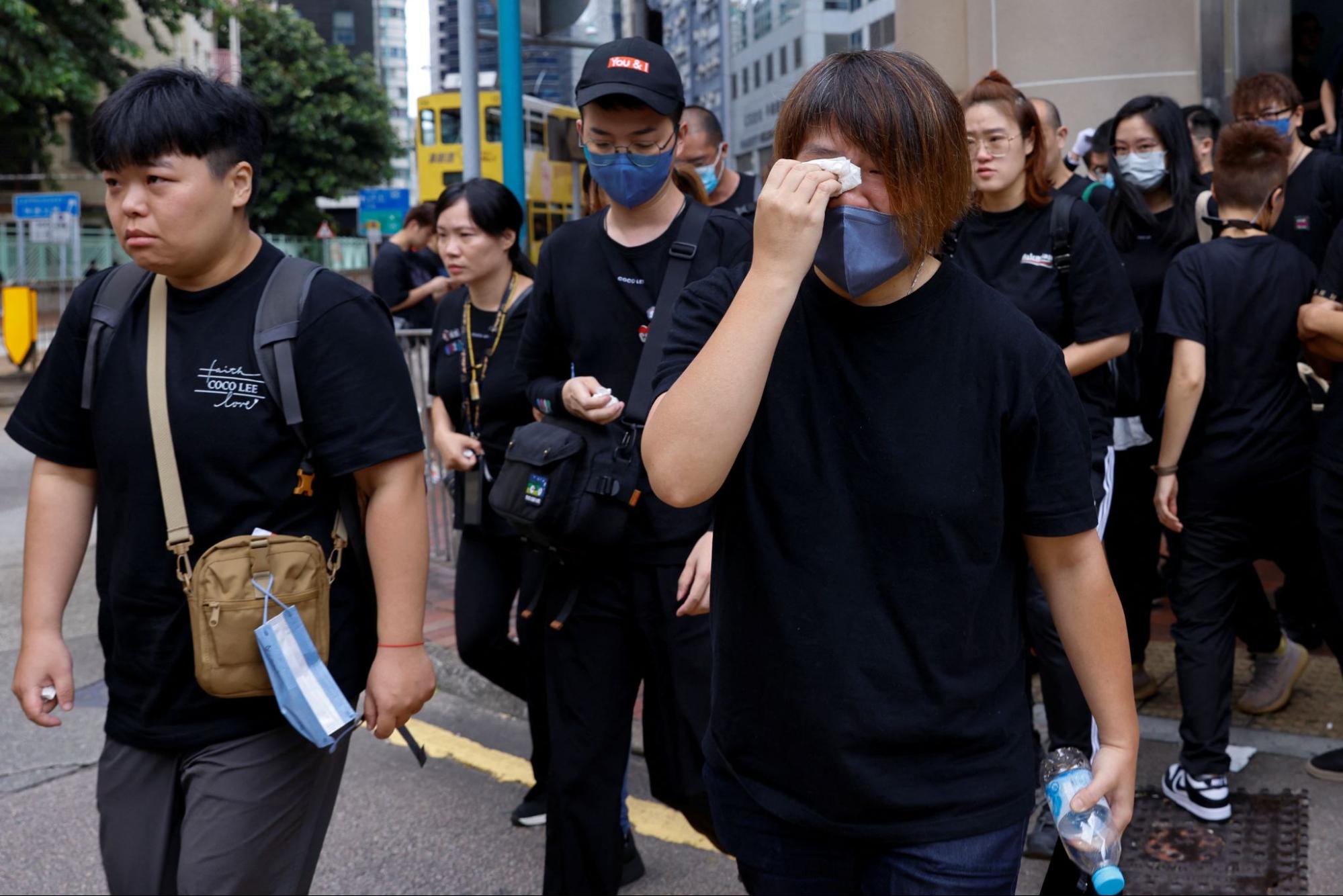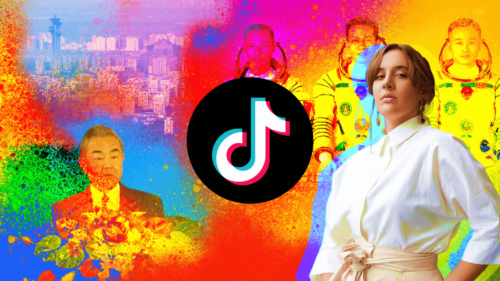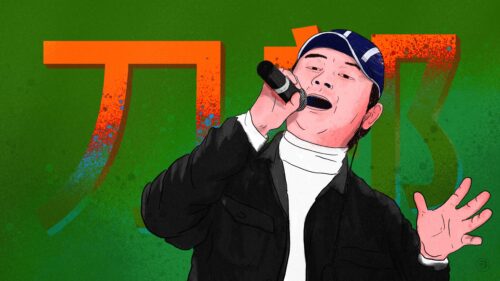Coco Lee funeral sees fans and celebs bid farewell to iconic singer
Born in then British-controlled Hong Kong, Coco Lee moved to the U.S. with her mother and two sisters when she was nine before returning to her birthplace to launch an illustrious music career. She committed suicide last month.

On Tuesday, friends and family members of singer-songwriter Coco Lee (李玟 Lǐ Wén) laid her to rest at a private ceremony in Hong Kong, a day after hundreds of tearful fans gathered to mourn her death.
As pallbearers carrying Lee’s coffin marched slowly toward the Hong Kong Funeral Home in North Point ahead of her cremation, nearly 1,000 mourners — most in black, some holding bouquets of white flowers — convened on the streets and outside the funeral hall, bracing the scorching summer heat to pay their final respects to the pop diva.


The two-day memorial service took place nearly a month after Lee died at 48 following a suicide attempt at home that left her in a coma. “With great sadness, we are here [to] break the most devastating news: Coco had been suffering from depression for a few years but her condition deteriorated drastically over the last few months,” the singer’s older sisters, Carol and Nancy Lee, announced on Facebook and Instagram at the time. It went on:
Although Coco sought professional help and did her best to fight depression, sadly that demon inside of her took the better of her. On 2 July, she [attempted] suicide at home and was sent to the hospital. Despite the best efforts of the hospital team to rescue and treat her from her coma, she finally passed away on 5 July.
Born in then British-controlled Hong Kong, Lee moved to the U.S. with her mother and two sisters when she was nine years old and later returned to her birthplace to launch her music career after winning a local singing competition.
In 1996, at the age of 21, Lee signed with Sony Music Entertainment and released her best-selling self-titled album Coco Lee. Two years later, she had a breakout moment on the global stage when she voiced the titular character for the Chinese version of Disney’s Mulan and sang the Mandarin version of its theme song “Reflection.”
She was the first Chinese singer to establish herself in the American market, with her 1999 English single “Do You Want My Love” receiving international attention and appearing on the U.S. Billboard Hot Dance Breakouts chart. In 2001, she made history as the first Chinese American to perform at the Oscars, singing “A Love Before Time” from Crouching Tiger, Hidden Dragon, the award-winning martial arts film from internationally acclaimed Taiwanese-American director Ang Lee (李安 Lǐ Ān).
Over her 30-year career, Lee released 18 studio albums, two live albums, and five compilation albums. Her final studio album was 2013’s Illuminate.
Monday’s public memorial service for Lee was attended by her relatives and friends, including those in the entertainment industry, such as singers Elva Hsiao (萧亚轩 Xiāo Yàxuān) and Jenny Tseng (甄淑诗 Zhēn Shūshī). In an emotion-filled eulogy, Lee’s close friend Hsiao recalled being inspired by Lee’s performances and looking up to her as a role model after she herself started pursuing a singing career. As the pair became friends, Lee cared for her like a real sister, Hsiao recounted.
“Since the incident happened, I’ve been listening to Lee’s voicemails nonstop,” Hsiao said in between bursts of tears. “I’ll keep on dancing for you, singing for you, and shine for you. You are my forever superstar, diva, and idol. You are my everything.”
Those who couldn’t attend the ceremony in person recounted their memories with Lee in pre-recorded videos. Action movie star Jackie Chan (成龙 Chéng Lóng) said in a clip that everyone was proud of her when she performed at the Oscars about two decades ago. “To friends like us, Coco was a passionate and kind friend who cared for people around her. She was such a good person. And that’s why we are so reluctant to accept that she has left us,” Chan said. Renowned filmmaker Ang Lee recalled his conversation with Lee before the Oscars ceremony and lamented that it was a pity she died so young. “She always seemed positive and good with people,” the director said. “We miss her very much. Coco, rest in peace.”
The memorial service on Tuesday also saw the attendance of Lee’s estranged husband, Bruce Rockowitz, a Canadian businessman and a former CEO of Hong Kong supply chain company Li & Fung. The two tied the knot in a lavish and star-studded wedding ceremony in 2011 after dating for eight years, but their marriage was reportedly riddled with conflict. When news of Lee’s death broke, Rockowitz received criticism from the singer’s fans, who accused him of putting Lee in distress due to his alleged extramarital affairs.
When Rockowitz left the service on Monday, he was surrounded by Lee’s angry fans, who blamed him for the pop star’s death, according to local news reports. The husband didn’t respond to the accusations and was absent from the private funeral on Tuesday.
According to the World Health Organization, depression and anxiety are the two most common mental health disorders in China, affecting around 54 million and 41 million people, respectively. Although mental health has been a prevalent issue in the country, it was for a long time considered to be a taboo topic in Chinese culture.
When Máo Zédōng 毛泽东 was in power, the communist leader outlawed the practice of psychiatry, as mental illness was declared a “lack of appreciation for the class struggle.” Since then, many Chinese people with mental health problems have opted to struggle in silence and never seek help.
But in the last few years, the social stigmas around mental health have been lifting. During the COVID-19 pandemic, many home-confined people took to social media to talk candidly about how lockdowns affected their mental health, which propelled a shift in the public conversation around the issue. Meanwhile, officials have ramped up their efforts to address the issue, with local governments setting up emergency hotlines and schools establishing counseling centers.






